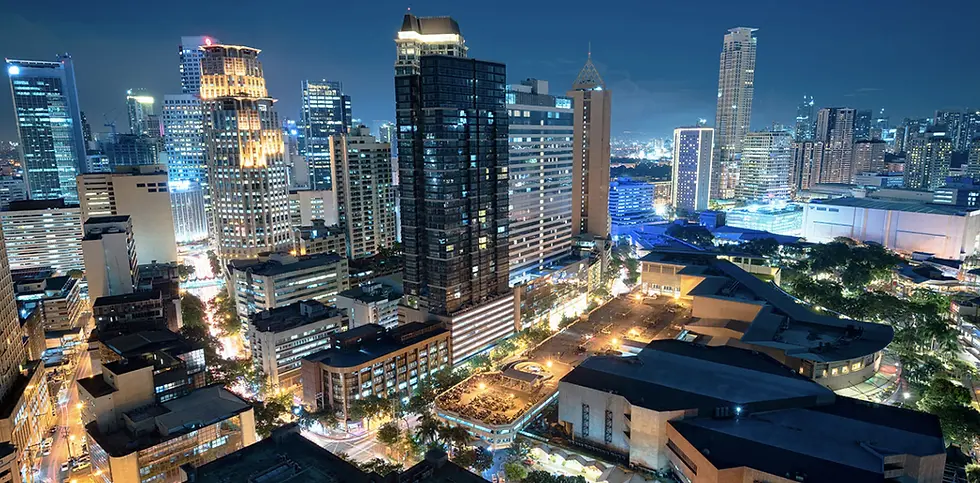Discovering Affordable Living Across Borders - 4 Insights into Manila Real Estate for Expatriates Housing Choices in the Philippines
- bedandgoinc
- 2024年4月22日
- 読了時間: 4分
Date: April 22, 2024
When considering relocating to the Philippines, expatriates are met with an array of housing options that cater to various lifestyles and budgets. The decision to move abroad can be daunting, but understanding the nuances of the local real estate market can significantly ease the transition. Below are four key points that comprehensively cover the real estate landscape in Manila for expats, aiming to provide a clear guide through the different aspects of settling in a new country.
1. Diverse Housing Options
For any expatriate moving to Manila, choosing the right type of housing is a crucial first step that aligns with their needs and lifestyle. The options vary from spacious houses, which are perfect for those valuing privacy and space, to practical apartments, and amenity-rich condominiums. Renting a house is particularly appealing for families or those planning extended stays, as these properties often feature multiple bedrooms, expansive living spaces, and outdoor areas like yards or gardens, offering a tranquil escape within the bustling city. However, houses tend to be more expensive than other housing types due to the extra space and privacy they provide. Apartments, on the other hand, offer a balance between affordability and convenience, making them a viable option for individuals or small families. These are typically located near essential amenities such as schools, hospitals, and shopping centers, adding to their appeal. Condominiums cater to expats seeking a mix of convenience and luxury, with facilities such as swimming pools, fitness centers, and round-the-clock security that ensure a comfortable and secure living environment in prime urban locations.
2. Navigating the Rental Process
Understanding the financial aspects of renting in Manila is crucial for expatriates to manage their budgets effectively and steer clear of unexpected expenses. Rent in Manila is considerably more affordable than in Western cities; for example, a modest one-bedroom apartment in a decent area might only cost around $300 per month, making it a highly attractive option for expats. In addition to rent, it is customary in the Philippines for landlords to require a security deposit equal to one to two months' rent, meant to cover any potential damages during the tenancy and typically refundable if the property is left in good condition. Lease terms usually last one year, though there's often flexibility to negotiate the duration based on the landlord's and tenant's circumstances. Expatriates should also consider additional living costs, as utility expenses for electricity, water, and gas are generally not included in the rental fees and can vary widely depending on consumption and property type. Moreover, those planning to bring or adopt pets should check the specific pet policies of the building or landlord to avoid any issues during their stay in the Philippines.
3. Cultural and Language Considerations
Adjusting to a new cultural environment is as crucial as finding the right home, and the Philippines offers a rich cultural tapestry that can be both enchanting and challenging for newcomers. While English is widely spoken in Manila, especially in business and tourist areas, Tagalog is the national language, and numerous local dialects exist, which can present language barriers, particularly in less urbanized areas or when handling legal documents related to housing. It is beneficial for expatriates to learn basic Tagalog phrases or consider hiring a translator for complex negotiations or legal matters. The Philippines is renowned for its hospitality and the warmth of its people, which significantly aids the cultural adjustment process. However, expatriates should be prepared for differences in lifestyle, social interactions, and business practices. Understanding and respecting local customs and holidays, as well as adopting a flexible attitude towards unexpected changes, are essential for a smooth integration into Filipino society.
4. Exploring the Housing Market
Whether choosing to live in the bustling heart of Metro Manila or its quieter suburbs, it's crucial to understand the dynamics of the local real estate market to make well-informed housing decisions. In Metro Manila, the location significantly influences rental decisions, with properties near business districts and essential amenities seeing higher demand and, consequently, higher rental prices. The city's notorious traffic makes commute times a substantial consideration; living close to workplaces or schools can therefore save valuable time and enhance overall quality of life. Conversely, the housing market outside Metro Manila typically offers a more relaxed atmosphere with generally lower rental prices. This often means fewer amenities and potentially longer commute times to more central areas. As rental prices can vary greatly depending on the specific location and property quality, conducting thorough research and gaining local insights are highly beneficial for finding the right home.
Navigating the Manila real estate market as an expatriate involves balancing budget constraints, lifestyle preferences, and practical considerations such as location and amenities. By understanding the available housing options, preparing for the rental process, respecting cultural nuances, and researching the local market thoroughly, expatriates can successfully find a home that meets their needs and enhances their experience in the Philippines. With the right approach and assistance from real estate professionals like those at Bed&Go Real Estate, expats can enjoy a seamless transition to life in Manila, making the most of their new surroundings in this vibrant country.
References:












コメント